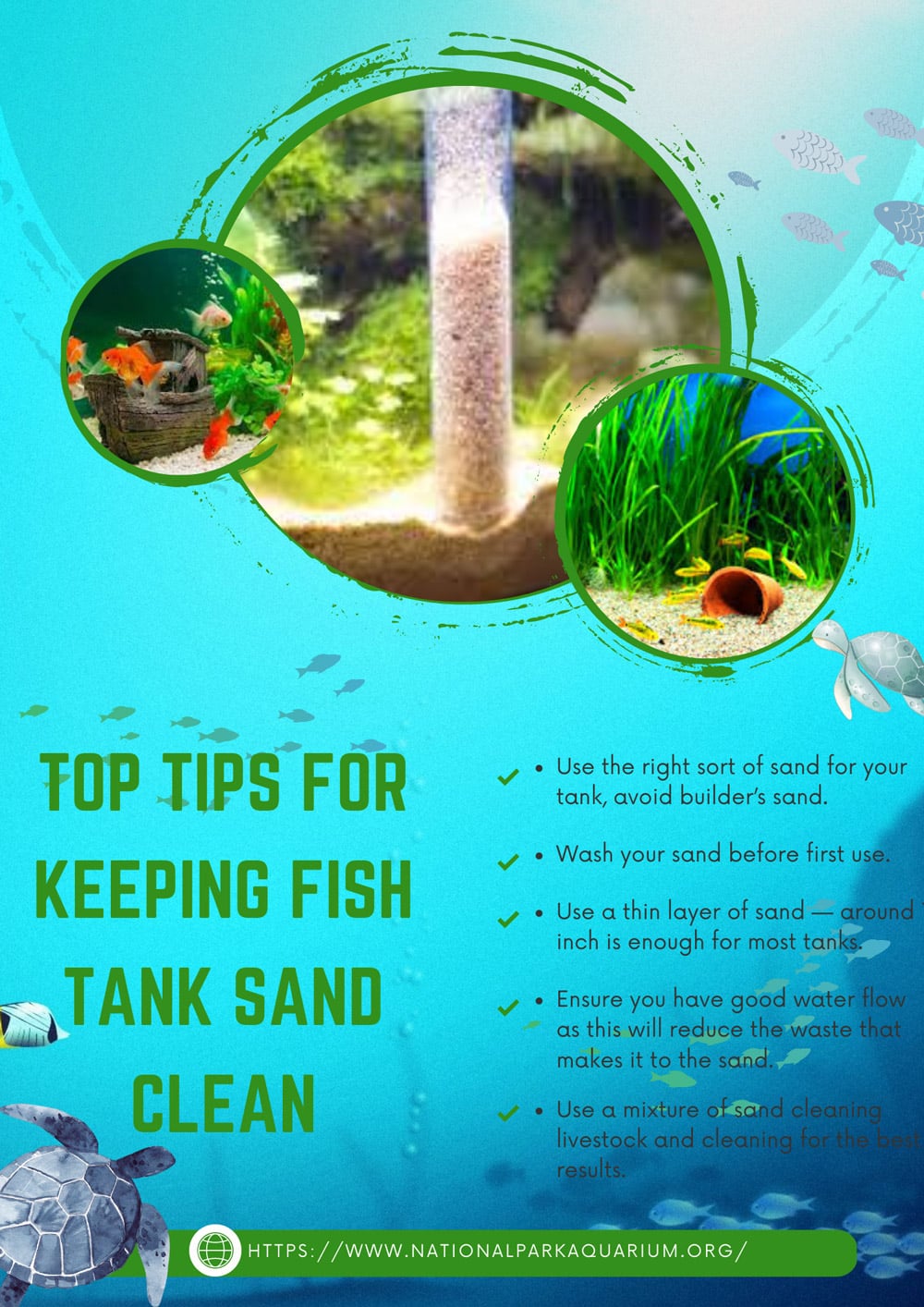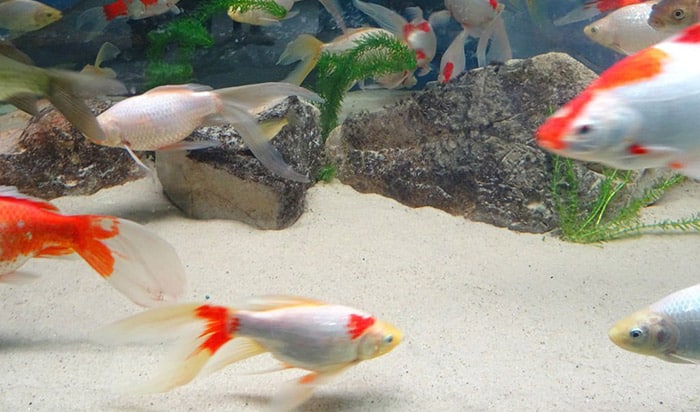The aquarium requires quite the effort to maintain a good condition for fish, and other aquarium lives to be healthy. Among those tasks, cleaning aquarium sand is a necessary part. Not only does it help keep your tank looking clean and tidy, but it also helps keep your fish safe by removing any harmful toxins or debris.
In this article, National Park Aquarium will provide you with a step-by-step guide on how to clean aquarium sand quickly and efficiently. So read on to find out more!

5 Steps to clean your aquarium sand
Before you start washing the sand, here’re some items you should have ready for use:
- A gravel vacuum
- A small net
- A holding tank
- Clean water
- A siphon or aquarium hose
- A gravel cleaner
- A small tube
Step 1: Remove all fish and plants from your tank
To clean aquarium sand properly, you’ll first need to remove all fish and plants from your tank. You can transfer them to a temporary holding tank by using a net to catch them.
The cleaning process can be quite disruptive and could potentially harm your fish or damage your plants. So it’s best to remove them from the equation entirely just to be on the safe side.
Step 2: Drain all the water from your tank
Now, turn off the filter and pump so that there is no water flow. Once all the water has been removed, you’ll need to clean out any remaining debris from the aquarium with a net.
Step 3: Add clean, fresh water to your tank and clear the sand
Now it’s time to add some clean, fresh water to your tank. You’ll need to do this slowly and carefully so that you don’t disturb the sand too much.
Once the water has been added, you can then start to clear the sand. The best way to do this is to use an aquarium vacuum cleaner or a gravel cleaner. These devices are specially designed to clean aquarium sand and gravel without damaging it.
Simply insert the tube of the cleaner into the sand and start suctioning. You may need to do this in a few different areas of the tank to get all of the sand clean.
Step 4: Rinse the sand with clean water
Once you’ve finished vacuuming the sand, you’ll need to rinse it with clean water. This will help to remove any residue from the cleaning process.
Simply place a hose into your aquarium and allow the water to run through the sand until it runs clear.
Step 5: Bring back the fish
Once you’ve rinsed all of the sand in fish tank, it’s time to refill the tank with freshwater. Add any decorations or plants back into the tank, turn on the filter and pump, and then add your fish back into the tank.
Again, it’s important to do this slowly and carefully so as not to disturb the sand too much. Once all your fish and plants are back in the tank, you can then top up the water levels and enjoy your clean aquarium!
How to Clean Aquarium sand Before Use
If you’ve just bought a new aquarium or are starting up a new fish tank, you’ll need to clean the sand before using it. The procedure is important because the new sand is often dry, and not appropriate for aquarium life.
To start, you’ll need to pour the sand into a bucket to rinse it under running water. Use your hands to stir and wash the sand thoroughly. Pour the dirty water out carefully; make sure you do not pour the substrate into the drain.
You may need to do this several times until the water in the bucket looks clean, indicating that the sand is washed clean.
Once the sand is rinsed, you’ll need to let it dry for at least 24 hours before adding it to the aquarium.
How to Clean Aquarium Sand without a Siphon

If you have an aquarium with sand as the substrate, you know that it needs to be cleaned regularly. Siphoning is the best way to clean the sand, but what do you do if you don’t have a siphon? One way to clean aquarium sand without a siphon is to use a bucket or bowl.
What you need
- Aquarium sand
- Bucket or bowl
- Water
Instructions to clean sand in fish tank without a siphon
- Transfer a portion of the aquarium sand into the bowl or bucket.
- Fill the bucket or bowl with water.
- Stir the sand in the water to dislodge any dirt.
- Pour out the dirty water and repeat steps 1-3 until the water runs clear.
- Leave the sand out to dry for 24 hours.
- Return the clean sand to your aquarium.
- Always turn off filters when disturbing the sand to prevent debris from getting sucked in.
- Consider using sand-cleaning creatures like Malaysian trumpet snails, which burrow and help aerate the sand.
- Never use soap or chemicals to clean the sand, as they can harm aquatic life.
- Monitor water parameters after cleaning, especially if you’ve done a deep clean or replaced a significant portion of the sand.
Properly maintained sand not only looks aesthetically pleasing but also promotes the health of the tank’s inhabitants. Regular cleaning, combined with the right tank setup, can reduce the frequency and intensity of deep cleanings.
Conclusion
When it comes to cleaning aquarium sand, you can use a few different methods. In this article, we’ve outlined the most convenient and easy ways and how to clean aquarium sand. We hope that this information will help you keep your aquarium looking its best.
Have you tried any of these methods for cleaning aquarium? Let us know in the comments below!




